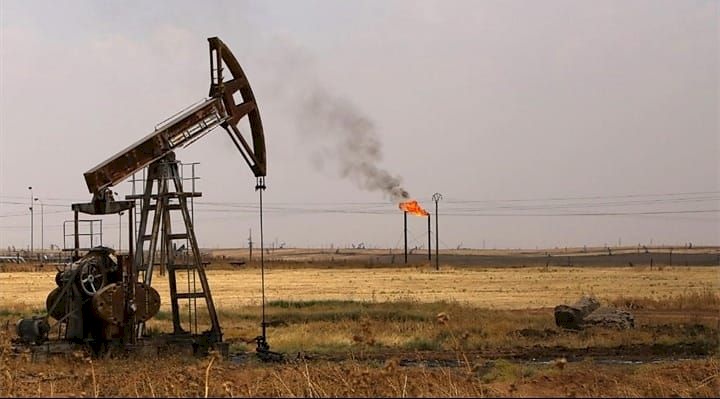
Oil Prices Decline for the Twelfth Consecutive Day
SadaNews - Oil prices fell for the second consecutive day, influenced by trader concerns regarding the potential for the "OPEC+" alliance to raise production, alongside indications of an economic slowdown in the United States and industrial data showing an increase in inventories at a major storage hub.
Brent crude, the global benchmark, declined towards $67 per barrel, while West Texas Intermediate crude fell below $64. This drop followed a report indicating that "OPEC+" intends to discuss a new round of production increases during its upcoming meeting at the end of this week. However, several delegates reported that Saudi Arabia and its partners have not yet finalized their stance on the supply trajectory.
An industrial estimate in the United States showed that crude inventories at the Cushing hub in Oklahoma — which is the pricing point for West Texas Intermediate crude contracts — rose by 2.1 million barrels last week. If the official data, anticipated to be released on Thursday, confirms this figure, it would mark the largest weekly increase since March.
Brent crude prices have dropped by about 10% since the beginning of the year, after the "OPEC+" alliance dismantled deep production restrictions at an accelerated pace to regain market share against competing producers. At the same time, supplies from producers outside the alliance have increased, while fears of a slowdown in crude demand have intensified with President Donald Trump's administration imposing a series of tariffs on trade.
Collectively, these factors have led to expectations of a potential oversupply, which could exacerbate global inventory levels.
Analyst Vivek Dhar from the Commonwealth Bank of Australia stated in a note: "With Brent crude futures trading above $65 per barrel currently, it seems reasonable for the OPEC+ alliance to at least consider raising production again."
Bloomberg: OPEC Oil Production Rise in August Amid Supply Increases
Weakness in Employment and a Market Slowdown
The "Federal Reserve" reported that economic activity in the United States — the world's largest economy — has seen "little or no change at all" across much of the country in recent weeks. It added that job vacancies have dropped to a ten-month low, reflecting increasing weakness in hiring appetite amid uncertainty associated with policies.
Oil market indicators suggest that conditions are no longer as unfavorable as they once were. The time spread between the nearest two Brent crude contracts — known as the "prompt spread" — was around 45 cents per barrel, compared to over a dollar two months ago, reflecting a decrease in the severity of the supply tightness.
U.S. policy towards Russia, particularly ongoing attempts to end the war in Ukraine by targeting Russian oil exports, has been another focus in the markets. Trump hinted at the possibility of imposing "stage two or three" of sanctions after deciding to penalize India for its purchase of Russian oil.
U.S. Energy Secretary Chris Wright stated in an interview with Bloomberg Television: "Most of Russia's oil exports — about 90% of them — go to China and India. Hence, Trump is trying to drastically reduce Moscow's ability to sell oil so that it cannot fund the war machine, which would lead to peace."

Losses Devour a Third of Silver's Value While Gold Experiences Its Biggest Decline Since t...

Trump threatens to impose tariffs on any country selling oil to Cuba, will reveal his nomi...

After rejecting Maliki.. What are Trump's economic cards to pressure Iraq?

Jordanian Central Bank Decides to Maintain Interest Rate

Oil Continues to Rise Amid Increasing US Threats to Iran

Norwegian Sovereign Wealth Fund Reduces Its Stakes in Major American Technology Companies

Gold Surpasses $5,500 and Silver Records New All-Time High
